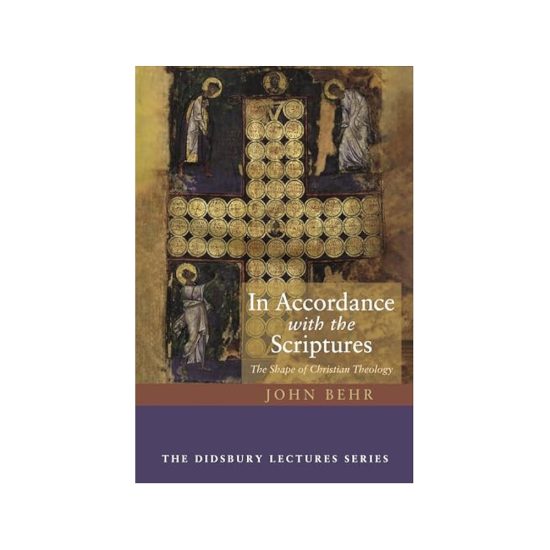
When I was younger, I relished sitting at the kids’ table at all family gatherings. My cousins, though mainly younger, were fun, and we could eat quickly and resume playing whatever game we had made up in the basement (where we had previously been banished to). I could not imagine wanting to sit at the stuffy adult table with all those extra glasses and silverware and grown-up conversation. As I grew up, though, I learned that after the formal part of the dinner, as my aunts and uncles lingered over empty plates and drink glasses (while my grandmother busied herself with dishes and such), the good stories would start to come out. I learned the stories behind family lore, misadventures, first loves, errors in judgment, and even a scandal or two. It was an unveiling of the past, and I gained a new appreciation for sitting at the adult table.

Sarah Blackwell
On a whim this fall, I grabbed my Bible with Apocrypha and decided it was time to read through these sacred texts. Instantly, I felt like I was transported to that after-dinner adult table where the juicy bits came to life. It felt a little clandestine — a bit of a church rebel here to see what parts were sectioned off by the early church patriarchs and later ditched altogether after the Protestant Reformation. In the Apocrypha, we get the tantalizing stuff — tails of dragons, a demon that kills new husbands, beautiful women decapitating evil kings, and the martyrdom of seven brothers. It is fascinating, inspiring, and occasionally disturbing. It is no wonder that “Apocrypha” loosely means “hidden.” It is a bit like the land of misfit toys — familiar, but not exactly what you were expecting. Some scholars believe it was “deemed to contain mysterious or esoteric lore, too profound to be communicated to any except the initiated.” Well, I was ready to be initiated.
So, why are these stories included in some Bible versions and not others? Why have so few Christians today heard of it, much less read the stories? While these books are not found in the Hebrew canon, they are present in the Septuagint, the oldest Greek version of the Old Testament. We see lines quoted by early church leaders, and it is included in Jerome’s famous Latin translation, the Vulgate (5th century). The texts were in all the Bible versions up until the Protestant Reformation, which coincided with widespread printing and distribution of personal Bibles. According to the New Oxford Annotated Bible with Apocrypha, the earliest copies without the Apocrypha were printing errors in 1599, where it was inadvertently left off but still included in the table of contents. The growing demand for less expensive and bulky versions of the Bible in the early 1600s led to printers to leave it off more and more (even in the face of laws that punished omission with a year’s imprisonment). Slowly, the standard English Bible of the time, the King James Version, shifted to leaving it off permanently. Though foreign to many of us, the import and impact of the apocryphal texts up to this point, however, can be seen in the art and literature of the Renaissance especially. Even Shakespeare named two of his daughters for heroines Judith and Susanna.
So, this new year, try something a little different. Add in some of the “juicy bits” of the apocryphal texts to your standard Bible readings. Some of them read like Hollywood movie scripts — I can see the plot synopses for blockbuster films now…
Bridal Chamber of Doom (Tobit)
Tobias, son of the righteous man Tobit (previously struck blind), desires to marry the beautiful, brave, and sensible Sarah. There is only one problem — all seven men who have married Sarah have died in the bridal chamber at the hands of a mysterious demon. Tobias must trust God and, under guidance from the disguised angel Raphael, find a way to chase away the demon, free his bride, and restore sight to his father. (PG-13)
Garden of Deceit (Susanna)
Susanna, a woman of great beauty and righteousness, is ogled by two of the town elders while walking in her garden. When she refuses their advances, they threaten her and say they will accuse her of adultery with a young man in the garden and have her killed. Susanna remains steadfast in her faith and cries out to God for salvation. Enter the hero, Daniel (yes that Daniel), who questions the men separately, exposing the deceit. (PG-13)
How to Kill a King (Judith)
A lovely, wealthy widow, Judith, sets out to save her people from the evil king Holofernes and his foreign army by charming him with her beauty and wits into the bedchamber, where she liquors him up, cuts off his head, and smuggles it home to her people as a sign that they are saved. (R)

Photo by Keren Fedida on Unsplash
Beyond the Hollywood blockbusters, there is also beautiful poetry and lyric wisdom teachings. One of the most interesting parts, for those who study how the Bible was formed, is the Prologue for the book Ecclesiasticus (also known as the Wisdom of Jesus Son of Sirach). In this narrative, the author gives the origin story of the work, talking about how his grandfather (Jesus, but not THE Jesus) was well-versed in the law and prophets and was called to write these additional words of wisdom. Interestingly, he includes this disclaimer, a good reminder to all who study the biblical texts: “You are invited therefore to read it with goodwill and attention, and to be indulgent in cases where, despite our diligent labor in translating, we may seem to have rendered some phrases imperfectly. For what was originally expressed in Hebrew does not have exactly the same sense when translated into another language. Not only this book, but even the Law itself, the Prophecies, and the rest of the books differ not a little when read in the original.” This one little paragraph might make some squirm a bit, but it is a good reminder of the living document the scriptures are. Not a surprise that bit was “hidden” away!
So, this new year linger at the table, stay up a little late, and listen to the grownup family stories. Get the “dish” or the “tea” (as the kids say) about the lore you may not be so familiar with but is part of our history of faith. For centuries, these stories stood right next to the biblical scriptures as having a valuable word to say about who we are as a people of faith. Just like how knowing your own personal family history shines a light on how things are now, so, too, will a dive into the mysterious, and sometimes eccentric, world of the adult table Apocrypha.
Sarah Blackwell (who now thinks she might have been named for the Sarah from the Book of Tobit) is a contributing writer at Word & Way and a graduate of the Gardner-Webb School of Divinity. She is an adjunct instructor in the Religion and Philosophy Department at Wingate University in Wingate, NC and a D.Min. student at McAfee School of Theology. Her intergenerational faith formation book, God is Here is available through Amazon and other online book retailers. Follow her writings at www.proximitytolove.org.






